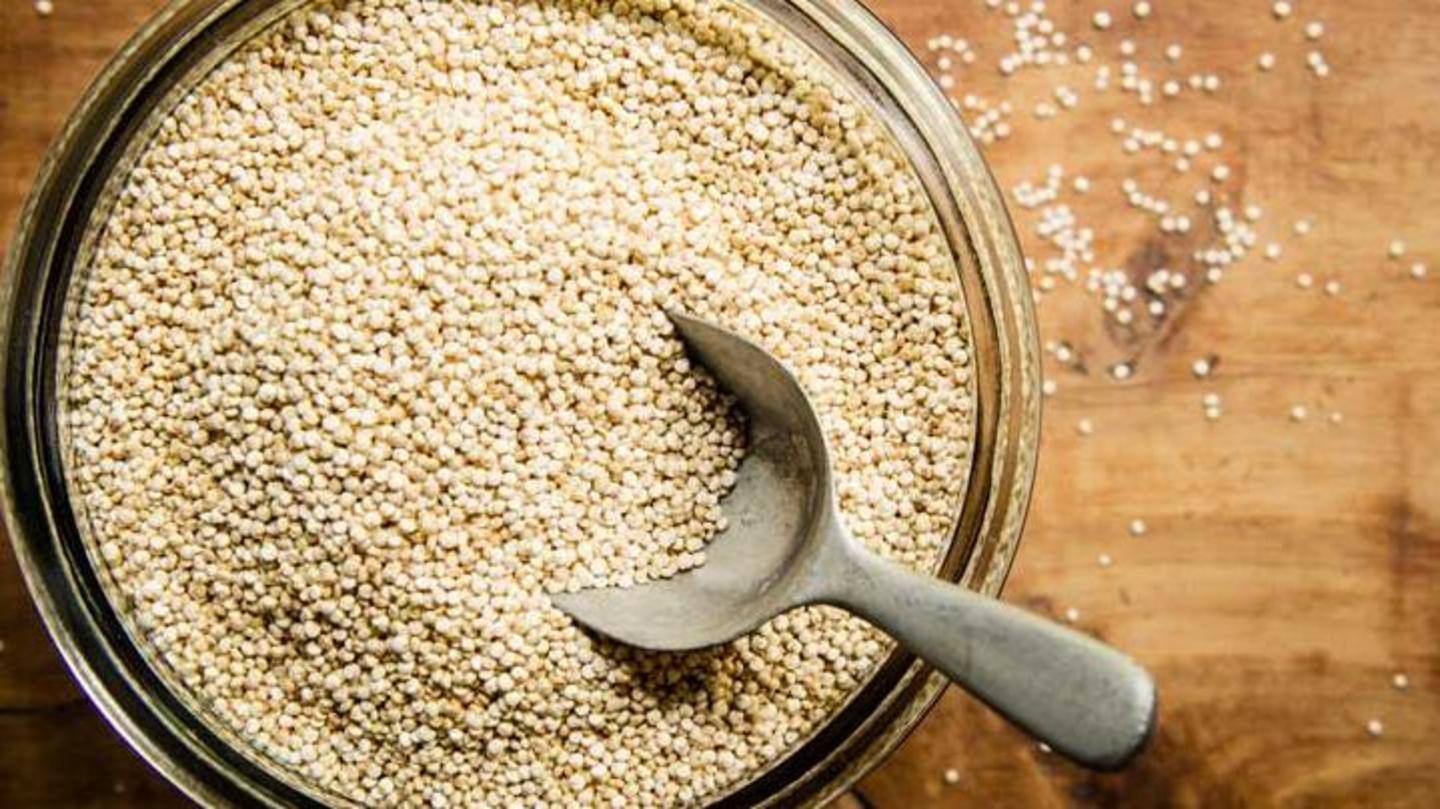
#HealthBytes: The many benefits of adding quinoa to your diet
What's the story
Quinoa is a whole grain that is most popularly used as a substitute for rice.
There are over 120 varieties of quinoa and both the seed and the leaves of its plant can be consumed.
The rich nutrient content of quinoa makes it an important addition to the superfood category.
Listed below are a few of the many benefits of this trending pseudocereal.
Gluten-free
Is naturally gluten-free and is suitable for gluten intolerant individuals
Quinoa is naturally gluten-free and is a healthy option for individuals who have gluten sensitivity and celiac disease.
A six-week study involving 19 people suffering from celiac disease showed that consuming about 50 grams of quinoa every day was well tolerated and they showed minimal to no intolerance to the grain.
Quinoa is also highly nutritious and increases the diet's overall nutrient profile.
Amino acids
Rich in protein, contains all the nine essential amino acids
Protein is made up of nine essential amino acids that cannot be produced by the human body and should be obtained externally from your diet.
Most food grains usually lack an essential amino acid called lysine.
Quinoa is, however, an exception, as it contains sufficient amounts of all the nine essential amino acids.
This makes it an excellent plant-based protein source for vegetarians.
Fiber
Quinoa has a rich fiber content; higher than other grains
Fiber reduces the risk of several health conditions like constipation, high cholesterol, and high blood pressure.
Diets rich in fiber also help in maintaining healthy body weight as people feel fuller for longer and thus reducing overall food intake.
One cup of quinoa contains about 5 grams of fiber, making it a fiber-rich source when compared to other whole foods such as brown rice.
Iron
Is rich in iron and adequate intake prevents diseases
One cup of quinoa provides about 34.5% of the recommended iron intake for males and 15.33% for females.
Iron deficiency leads to a number of diseases such as anemia. Iron is also an essential component of hemoglobin that carries oxygen in the blood and aids in healthy cell functioning.
Adequate iron intake is also vital for healthy connective tissue and muscle metabolism, too.